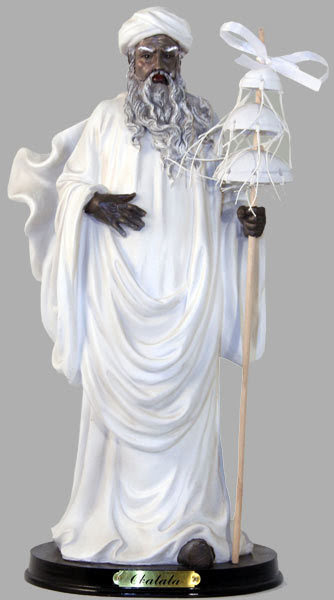Who is Chukwuokike-abiama? - Onyeji Nnaji
In the cause of completing the IGBO history but reaching out to the four nations that are symbolically mentioned by the Igbo oral tale, I came across this term in Nsukka. According to elders at Dunuka, I was told thus,
"When Nsukka ancestors arrived like other ancestors of the Igbo race, Eri (The first man to descend) and other elders set out on a journey to the new land inhabited by another band of celestial brethren. It was remarked by the Igbo oral thought that Eri lived for four thousand years. He lived to the appearance of all the Ncestors of the igbo race before he ascended back to the cosmos. According to the Nag Hammadi, the ancestors arrived in four completely generations which, of course, is estimated in the Origin of Time to be four thousand years. So, when the new ancestors incepted, the representatives of the fore-existing ancestors (Eri, Dioka and Idu) visited as the tradition demanded.
Upon arrival to at Nsukka, the Nsukka anscetors recognised who they were and, unanimously, they remarked thus, "Chukwu okike abiama," translated to the creation god has arrived. Immediately, Eri exclaimed thus, "Ha, nke a bu Nsu ka," translated to mean, ha this is exotic tongue." Erisaid this because of the new ancestors' use of abiama which was different from abiago, abiawo and The ancestors were welcomed in the manners of the god-men; discussions we're held bothering on the distinct role of the new ancestors (the Nsukka). In the end, Eri heaved a sigh of relief, having seen the last ancestors and he said appealingly thus, "Okike ezugo," meaning, creation is over."
Chinua Achebe was the first to make this suggestion. In Achebe's words:
The Igbo are not so specific about Chukwu’s role in the creation of man, but may be suggesting a similar delegation of power by Supreme Overlord to a lesser divinity except that in their case every act of creation is the work of a separate and individual agent, chi, a personified and unique manifestation of the creative essence.
Yoruba also share in the nuances that the first men were sent down from the sky by God. A version of Yoruba oral tradition insists that Obatala (whom Ifa called the father of the Igbo nation) was saddled with the responsibility to create the world, but after the war of the gods, he was asked to create man.
Olorun threw down an iron chain from the sky and toldObatala, the eldest of his sons, to climb down and create land on the water below. On his way down, Obatala joined some other Gods who were having a party, and he later discovered that his younger brother, Oduduwa had created the world in his place…Obatala and Oduduwa quarelled and all the other Gods took sides. In the end, Olorun settled the dispute by giving Obatala the power to create mankind.
Obatala is addressed here as the eldest among the gods who were sent to the earth course. The continuation of that same oral tale reveals the person of Obatala as the father of the Igbo race. Ruth Finnegan, in her research on Nigerian oral literature captured this in the following way:
The sky is immense, but grows no grass.
That is what the oracle said to Obatala,
To whom the great God gave the reins of the world.
God of the Igbo, I stretch out my hands.
Give the reins of the world to me (Oral Literature, 195).
It did not end there, the tablet stones excavated at the valley of Egyptian soil in the village called Nag Hammadi also said a similar thing. At the section of the book which treated the origin of the world, it was recorded that God did not create man by Himself. It reveals that God handed over the art of creating man in the hand of those who descended from the sky. This is the same thing echoed by both Igbo and Yoruba oral history.
As strong as one may try to refute this assertion, at a point he will see himself laughing at his foolishness. God created man, no doubt. Nobody is in doubt of this, whether a Christian or non christian. But as an Igbo man tutored by my own history itself, I came to know that there are much to what we say than what we think we actually meant.
In Nkalaha, there uused to be a household chi called "Chukwu-oke". The role of this chi is to ensure fruitfulness in marriage and to stop child bearing when the couple asked him to do so. My knowledge of the role of "Chukwu-oke made me to apply judgement to what I met at Nsukka. I always believed the contrary, but now I saw the difference.
Whatever anyboday wish to say notwithstanding, anybody who speaks Igbo language and understand it and probably could deduce the aspect of Igbo dialect a particular words are derived from will believe that the term is Nsukka. Chukwu, for sure, is a general Igbo word. But "Abiama" cannot be traced to any other ancestry, except Nsukka.
Chukwuokike-abiama refers to Eri not
Chuckwu or
Chineke.
Follow us on twitter (ajuede.com) or on Instagram (ajuedeman) for details of the global situation presently.






.jpeg)
Comments
Post a Comment